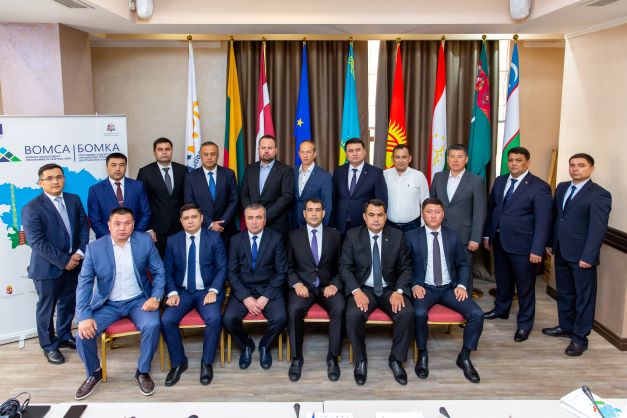From July 19 to 21 the Border Management Programme in Central Asia, in partnership with the Central Asian Regional Information and Coordination Centre for Combating the Illicit Trafficking of Narcotic Drugs, Psychotropic Substances and their Precursors (CARICC), held its second regional workshop for representatives of border guard services and law enforcement institutions of all five countries in Central Asia. The participants learned about modern methods and tools of crime analysis, information exchange and other forms of cooperation during investigation of cross-border organized crimes.
Experts from the Criminal Investigation Board of the State Border Guard Service of the Republic of Lithuania and the Lithuanian Criminal Police Bureau, jointly with the delegates from of Central Asia, looked into the tools and forms of cooperation used in EU Member States during the investigation of cross-border organised crimes, such as trafficking in human beings (THB), smuggling of migrants and excise goods, smuggling of drugs, firearms and their parts, ammunition and explosives. In turn, participating delegates shared their experiences on the methodology used in their respective countries, use of similar e-systems and digital registers, needs and benefits of the further digitalisation of investigations etc.
Conducted in the framework of the Component 2, “Improvement of detection capacities”, this is the second regional activity of this kind. As a result of the workshop, recommendations were developed on crime investigation information exchange.

